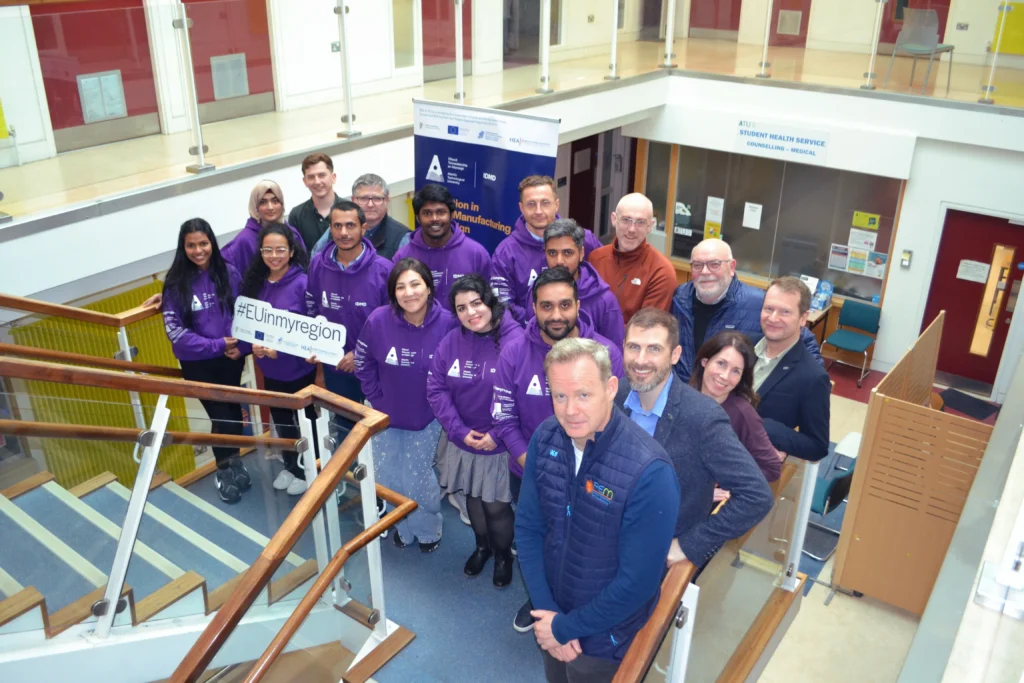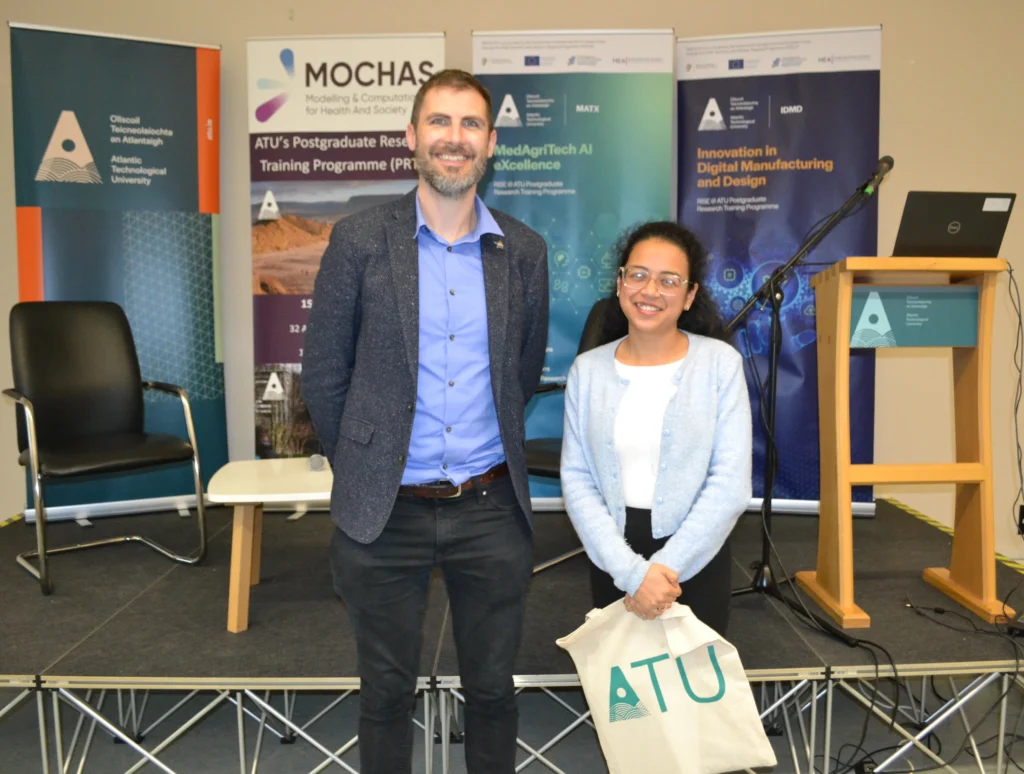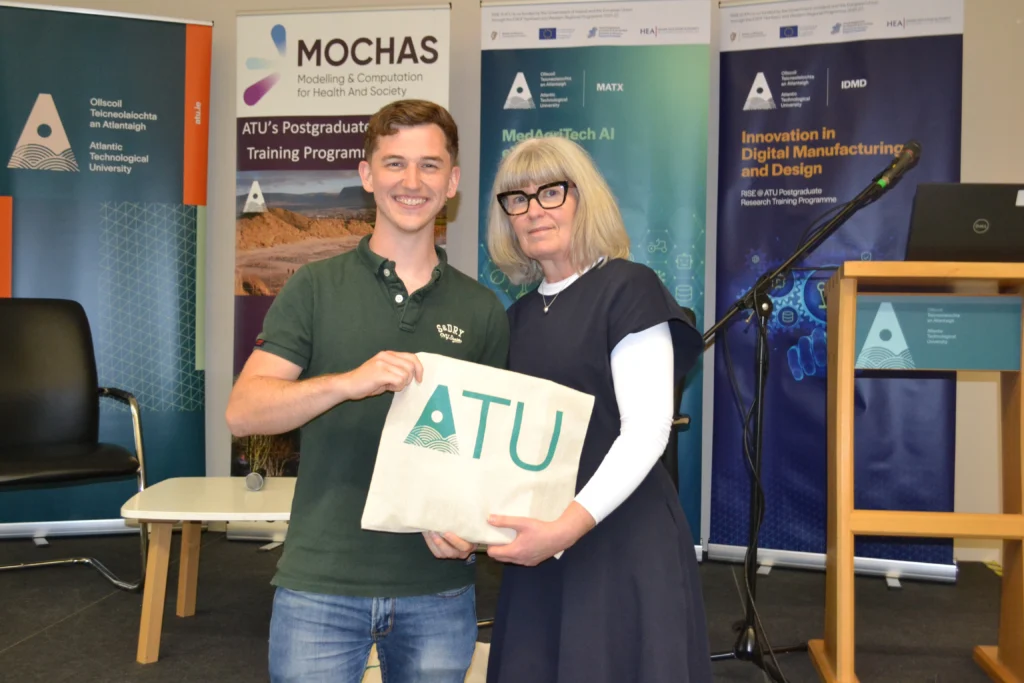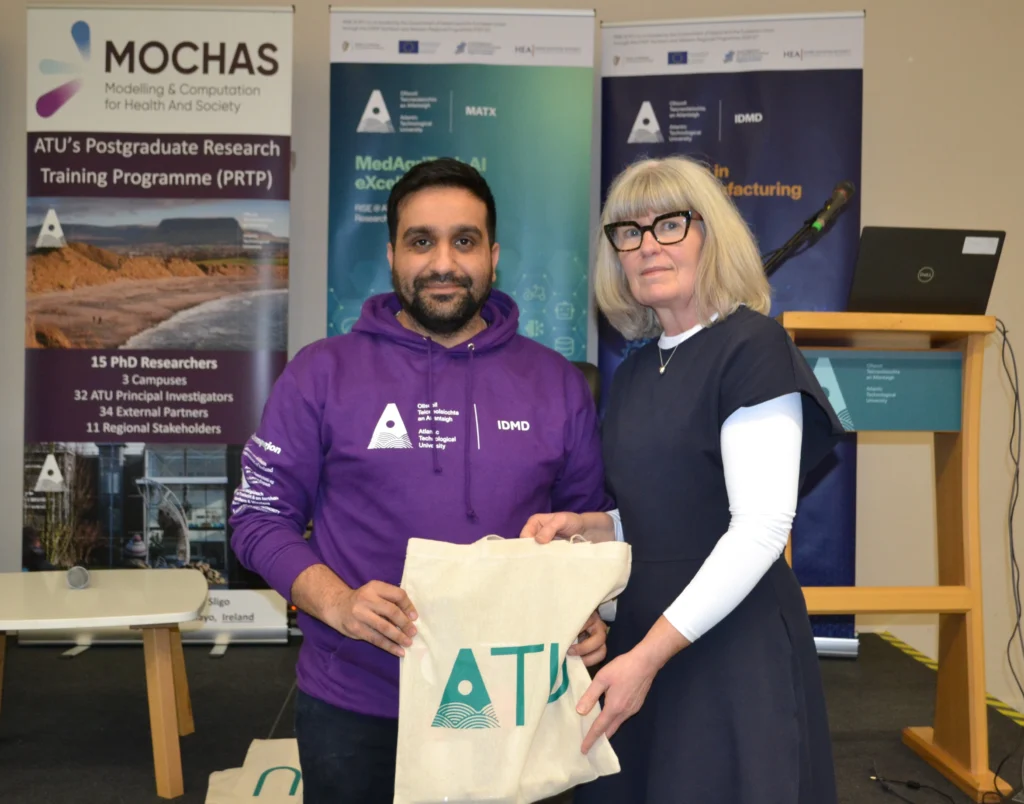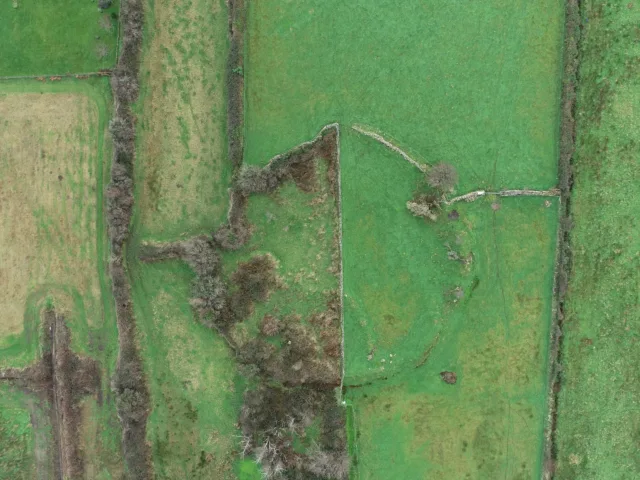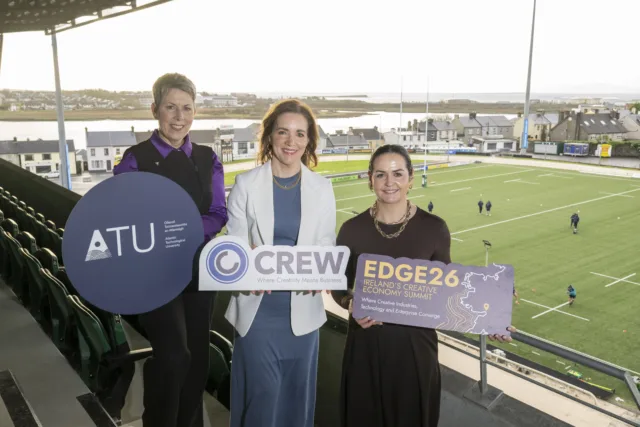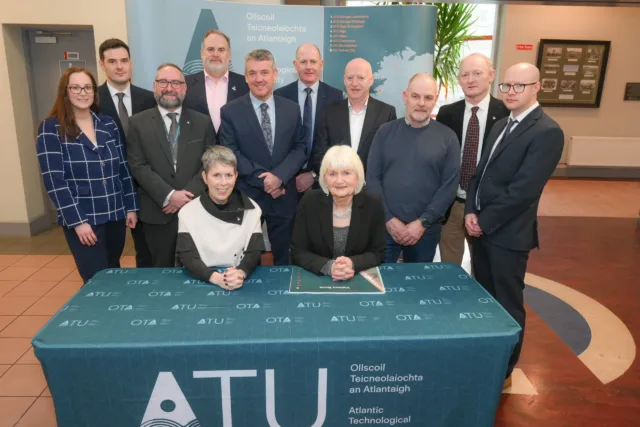Courses
From MRIs to material Handling: AI and robotics in action at Joint RISE@ATU Symposium
The first joint RISE@ATU Symposium brought PhD researchers together to tackle society’s biggest challenges across health, manufacturing, and agriculture.
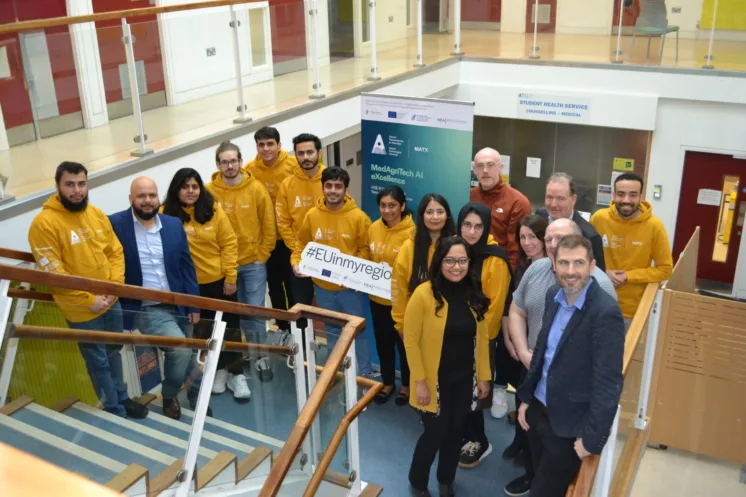
The symposium, held at ATU Sligo, was hosted by the MedAgriTech AI eXcellence (MATX) and Innovation in Digital Manufacturing and Design (IDMD) Postgraduate Research Training Programmes. They were joined by researchers from the Modelling and Computation for Health and Society (MOCHAS). Altogether, 27 PhD researchers presented projects spanning multiple disciplines.
Opening the event virtually, Dr Brendan Jennings, Chief Officer for Research, Innovation & Engagement, said:
The projects featured in this symposium really resonate with my own PhD research. I understand firsthand the challenges and excitement of this kind of work, and it’s incredible to see these researchers using AI and robotics to create real solutions that improve lives, support industries, and demonstrate the power of collaboration between research and industry.
Researchers showcased projects ranging from non-invasive MRI treatments using Generative AI for brain tumour detection, to self-powered wearables for e-Health monitoring, and robots delivering personalised rehabilitation care.
Artificial intelligence is transforming nearly every industry, so it’s important to apply it in real-world settings to understand its risks and benefits.
– Dr Saritha Unnikrishnan
Dr Saritha Unnikrishnan, MATX lead, said: “The MATX programme spans applications from dairy and automotive manufacturing to MRI analysis and stroke rehabilitation. Our research focuses on harnessing AI and robotics to tackle societal challenges and deliver meaningful change.”
Dr Emmett Kerr, co-lead for MATX, added:
“These projects are unique because of their close collaboration with enterprise partners. Our researchers are working with Teagasc and Aurivo to improve dairy production, and Valeo to develop advanced camera sensors for automotive and agricultural applications. These partnerships let researchers employ smart technologies in applied settings, ensuring their research delivers tangible benefits.
All the posters and presentations were of high academic quality. A winner in each category was selected through people’s choice votes:
- Best Talk: Dipshikha Das, “Automated Re-Configuration for Material Handling and Inspection in Advanced Manufacturing.”
“My research addresses the challenge of manual material inspection in the manufacturing industry,” Dipshikha said. “I am exploring how learning from demonstrations can teach robots to perform inspection tasks, enabling effective human-robot collaboration and allowing them to learn like humans, by watching, understanding, and doing.”
- Best Pitch: Gordon Hegarty, “AI-Based Testing of ECU and Camera Hardware.”
“My work is in the automotive industry, specifically testing Electronic Control Units (ECUs). They are the ‘electronic brain’ of a car, involved in functions like infotainment, engine control, braking, and autonomous driving”, Gordon explains. “We’re using AI to automate parts of the testing process, making it faster for engineers while helping manufacturers maintain high standards and stay competitive globally.”
- Best Poster: Mostafa Mellizadeh, “Optimisation of the Silicone Rubber Dipping Process Using Robotics.”
“I will be focusing on improving the silicone rubber coating process using robotics and AI,” Mostafa shares. “By automating and predicting coating thickness through AI models, we can improve product quality, consistency, and safety. This research can help make manufacturing smarter, faster, and more sustainable.”
Dr David Tormey, IDMD lead, expressed his congratulations to the PhD researchers for delivering exemplary posters and presentations: “The research exhibited today showed how our students understood the impact of AI in our everyday lives and to support regional needs.”
Dr Philip Long, MATX co-lead, concluded: “By hosting joint events like this, we will hopefully inspire future collaborations and spark new innovation among researchers.”
The symposium successfully challenged researchers to present their projects in ways that were impactful and relatable, highlighting the relevance and potential of AI and robotics across multiple industries.
RISE@ATU is co-funded by the Government of Ireland and the European Union through the ERDF Northern and Western Regional Programme 2021-2027.

Featured image: Group photo of MATX supervisors and researchers.
Jorden McMenamin
Communications Officer
Tel: 074 918 6127
E: jorden.mcmenamin@atu.ie
